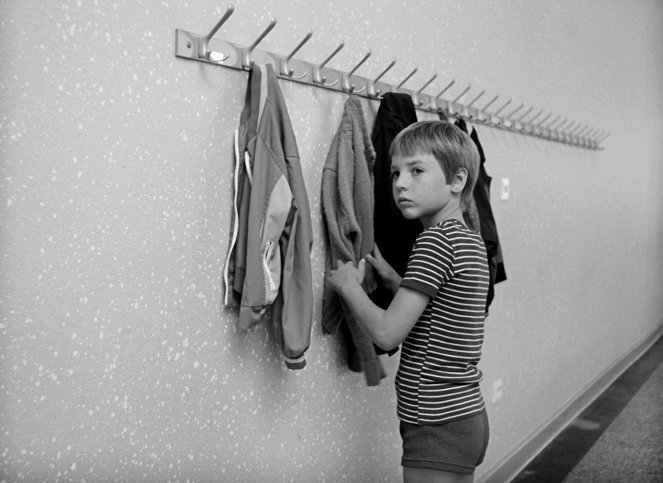Opisy(1)
Michael (9) is a latchkey kid. He is usually already asleep when his mother comes home late at night, and when he leaves for school in the morning, she, in turn, is still abed. She is a sex worker and cries a lot. Michael is saving up for a bicycle; he runs errands and feels forced to steal from his classmates regularly. Michael is often alone… The Anton Chekhov quote, “I am like the wind blowing across the lonely fields” was the impetus for this impressive sketch of everyday life from the perspective of a child in Berlin’s Wedding district who must prematurely bow to the rules of the grown-up world. With sparse dialogue and in precisely stylised visuals, Time of Maturity is a story of social numbness and marginalisation. Both are accompanied by a generalised, latent sense of violence that, in the end, becomes manifest before the young boy’s eyes. (Berlinale)
(więcej)Recenzje (1)
A Film excerpt from the life of nine-year-old Michael, who spends his childhood between school and home, where only his mother - a local prostitute - waits for him. The formal aspects of the film correspond to the monotonous life of the boy - long shots, minimization of time ellipses, slow pace, and repetitive shooting and arrangement of shots in the same recurring situations. We are confronted with the gloomy adolescence of a child, who nevertheless lives or tries to live a normal life of children's games and dreams. Personally, this film reminded me of a one-year older film Jeanne Dielman, 23, quai du Commerce, 1080 Bruxelles by Akerman, in which there is an identical distribution of characters and their roles (although the director's focus on one of them differs) and, above all, a similar (although much more pronounced in Akerman’s film) formal process. Saless' film is very subtle and unspectacular, with meanings being casually presented - for example, the role of money in the lives of West German children, prostitutes, traders, and pensioners.
()
